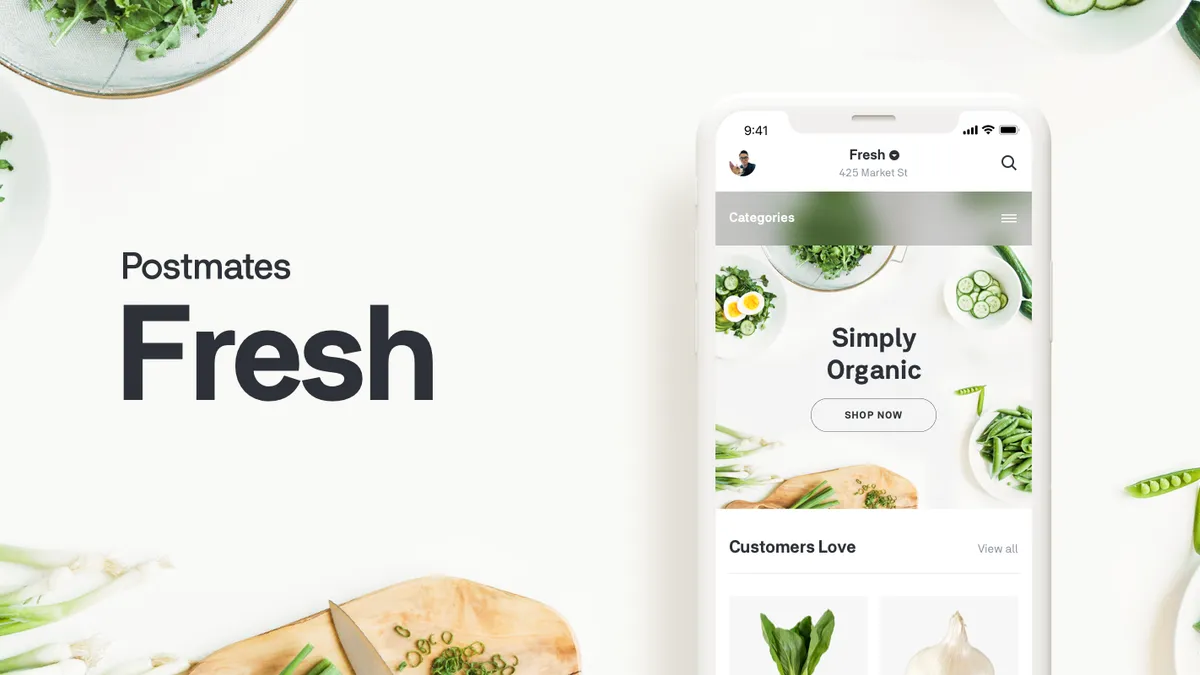Dive Brief:
- On-demand delivery company Postmates has launched Postmates Fresh, a grocery service that offers 30-minute delivery of produce and specialty items for a $3.99 fee, in Manhattan, Los Angeles and San Francisco, according to a company release.
- Postmates has partnered with local farms and grocery stores in each city. In New York, Postmates has teamed with East Village Farm, while in Los Angeles it's working with high-end grocery Urban Radish. In San Francisco, Postmates has signed on with Farmstead, the online startup that recently introduced its own 30-minute order pickup service.
- According to Fortune, Postmates Fresh is taking aim at grocery delivery services like Instacart and AmazonFresh, but its selection is more limited and focused mainly on affluent customers.
Dive Insight:
Postmates, which launched in 2011, has always offered delivery from local grocery stores. But this new service establishes a separate category that takes aim at some of the more established e-commerce players in the business. Postmates Fresh features the company’s first official grocery partnerships and a separate ordering tab within its app, which Postmates redesigned to mark the occasion.
Postmates Fresh certainly isn’t lacking for competition. AmazonFresh and Instacart, along with a smattering of startups, operate in all three cities where Postmates Fresh has launched. Instacart, in particular, has grown at a breakneck pace of late, and now partners with many of the biggest names in the supermarket industry.
AmazonFresh, meanwhile, has expanded slowly over the past decade, and recently announced it would discontinue its service in numerous markets around the country. Many observers believe this move reflects Amazon’s struggles to grow the business, but concede the e-tailer remains a potent force in online grocery with its Whole Foods acquisition.
Postmates Fresh doesn’t offer the same variety of products that AmazonFresh and Instacart can provide. This might seem like a disadvantage, but Postmates is focusing on delivering higher-margin specialty items, local produce and ingredients to its affluent customer base. The company is also targeting fill-in trips as opposed to large shops.
“Customers can now count on us for those last minute items,” Postmates notes in a blog post about its new service. “Run out of lemons or limes? Check. Almond milk? Yep. Need a sole fillet for date night? What about another sprig of oregano, mint, or thyme? Yep, Fresh has that too.”
Postmates’ built-in clientele and a lightning-quick delivery should give it a solid foundation, and could be a recipe for growth in its core markets. But the service may struggle to expand in cities that aren’t as densely populated. Indeed, small orders can quickly add up in cities like New York, but Postmates will need to increase its basket size if it hopes to compete in other cities where AmazonFresh and Instacart do business.









